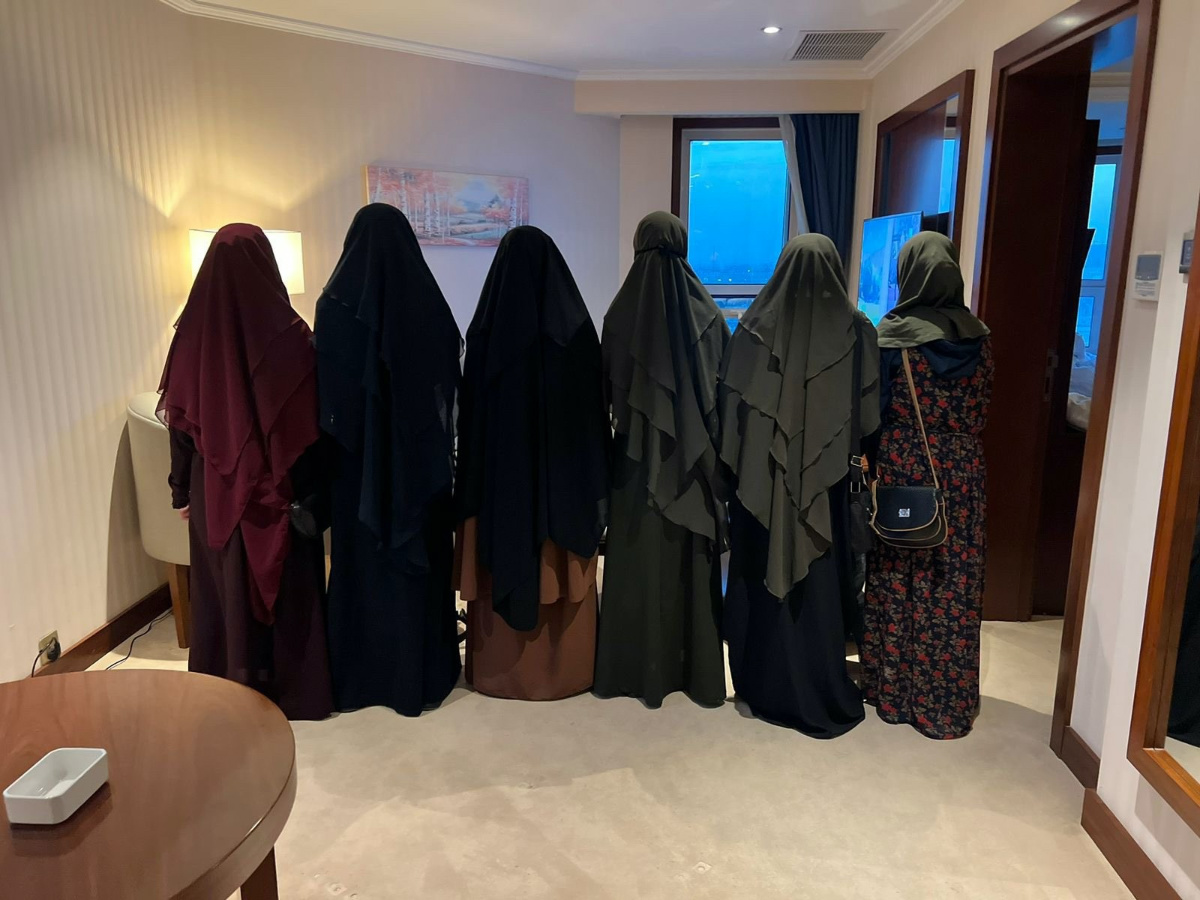
ELLIS HEASLEY, of UK-based religious freedom advocacy CSW, says we cannot simply assume that the plight of Christians, Yazidis and others ended with the defeat of IS in the region in 2017…
London, UK
On 3rd June, after eight-and-a-half years in Islamic State captivity, six Yazidi women were rescued from Syria and flown back to Erbil in Iraqi Kurdistan to be reunited with their families.
The women – whose identities have been kept secret for security reasons – were just children and teenagers when they were abducted in 2014. Now, they and their families face the immense challenge of rebuilding their lives after nearly a decade of separation, trauma and abuse.
It is estimated that over 2,000 others are still missing.

The six Yazidi women rescued from Syria earlier this month. PICTURE: Twitter/@NadiaMuradBasee
The Yazidis are one of many religious minorities in Kurdistan – adherents of an ancient religion who have faced violence and even persecution for centuries. When IS terrorists seized swathes of land in East and Northeast Iraq in 2014, including the Yazidi city of Sinjar, they launched a campaign of violence against the community which has since been identified as a genocide by multiple international observers including the United Nations Human Rights Council, the European Union, and the governments of at least ten different countries.
It is estimated that the terrorists killed 5,000 Yazidi civilians for refusing to convert to Islam, while somewhere between 400,000 and 500,000 were forcibly displaced. Some 6,000 to 7,000 Yazidis, most of them women and children, were taken as slaves, with the majority subsequently sold and transferred to Syria.
“It is estimated that the terrorists killed 5,000 Yazidi civilians for refusing to convert to Islam, while somewhere between 400,000 and 500,000 were forcibly displaced. Some 6,000 to 7,000 Yazidis, most of them women and children, were taken as slaves, with the majority subsequently sold and transferred to Syria.”
Even after the July, 2017, liberation of Mosul and the Nineveh Plains – where the majority of the Yazidi community currently lives – terrorist attacks and insecurity have persisted, and many members of religious minority communities remain unwilling to return to liberated regions as they continue to fear for their safety.
While the Kurdistan Regional Government has set up an office dedicated to rescuing kidnapped Yazidi women and girls, other governments – like those of Iraq and Turkey, where many Yazidis fled – have done little to help. In December, 2019, CSW visited the region and met with the late Yazidi spiritual leader known as Baba Shekih who told us that even when the whereabouts of abductees is known “the governments in Baghdad and Ankara have refused to reunite the abducted with their families”.
Christians from the region experienced similar horrors; after the fall of Mosul in June, 2014, IS demanded that Assyrian Christians living in the city convert to Islam, pay jizya (a tax levied on non-Muslim subjects of a state governed by Islamic law), or be executed by 19th July, 2014. Estimates of those who subsequently fled exceed 100,000.
In December last year, an Investigative Team to Promote Accountability for Crimes committed by the Islamic State group submitted a report to the UN Security Council which found evidence that IS was responsible for crimes against humanity and war crimes against the Christian community, detailing a range of violations, including the seizure of property, sexual violence, enslavement, forced conversions, and the destruction of cultural and religious sites.
While Christians have slowly begun to return to the region, encouraged by a March, 2021, visit to the country by Pope Francis among other developments, the wait for justice continues, and the KRG itself has also contributed to the challenges faced by Christians and Yazidis who live or are attempting to return to areas under its control.
We rely on our readers to fund Sight's work - become a financial supporter today!
For more information, head to our Subscriber's page.
As a result of tensions with the Iraqi central government in Baghdad, the KRG has reportedly made efforts to ‘Kurdify’ its territories by forcibly appropriating land and property, and even applying pressure on Christians and Yazidis to identify as Kurds, even when they do not wish to do so.
Next year will mark 10 years since IS launched its campaign of terror on the people of east and north-east Iraq, and its effects still shape the lives of so many. The rescue of these six women should be cause for hope that the thousands who remain in captivity will also be delivered, but the pace of current progress towards achieving this is far too slow and will remain so without concerted efforts and assistance from members of the international community.
While there are many crises on the global agenda at the moment, it is not enough to simply assume that the plight of Christians, Yazidis and others ended with the defeat of IS in the region in 2017.
As well as taking steps to ensure that all who fled or were taken from their homes are able to return, the international community must put pressure on the KRG and Iraqi Government to ensure that the homes and lives these people return to are safe and free from further violations of freedom of religion or belief and other fundamental human rights.

Ellis Heasley is public affairs officer at UK-based religious freedom advocacy CSW.






